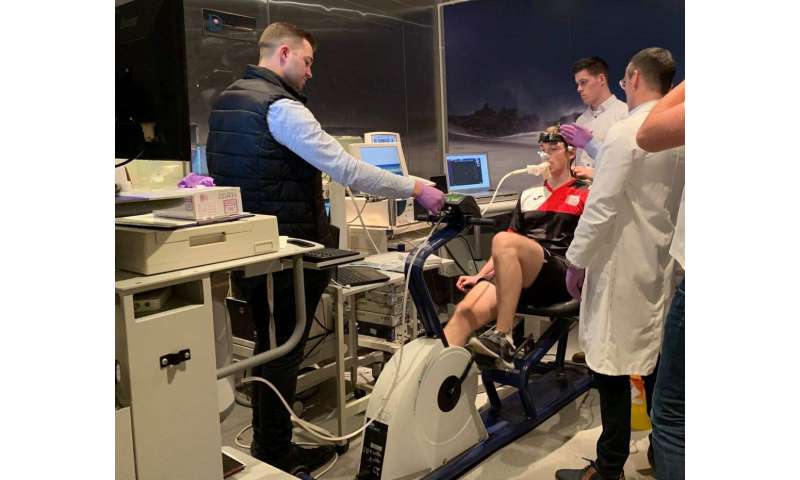
A wearable biosensor may help monitor stress experienced by healthcare professionals, according to a study published in Physiological Reports.
In the study of 12 healthy male volunteers, a wearable biosensor that is placed on the chest, called the VitalScout, provided an accurate assessment of physiological parameters—heart rate and respiration rate—that are used to calculate stress. Furthermore, the biosensor’s metrics correlated strongly to those obtained using breathing analyses, and they could discriminate changes associated with stress from changes related to increased physical activity.
“A high prevalence of stress and burnout has been reported in healthcare professionals, however, the current tools utilized to quantify such metrics like smart watches or questionnaires are not in keeping with doctors’ busy lifestyles and do not comply with infection prevention policies,” said senior author Prof. Damian M. Bailey, Ph.D., of the University of South Wales, in the UK. “Given that increased stress can subsequently impact both the healthcare profession and the patient in care, we believe the wearable biosensor used in this study is a useful tool to monitor and manage stress experienced by healthcare professionals.”
Wiley

